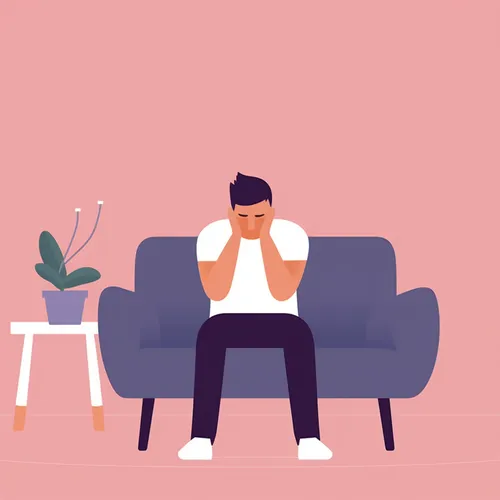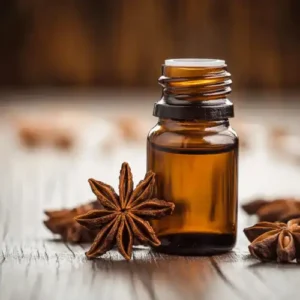What Triggers Erectile Dysfunction?
Erectile dysfunction is when a man has trouble getting or keeping an erection firm enough for sex. While frustrating, it’s an extremely widespread issue.
There are a few potential causes:
- Drinking excessive alcohol or emotional problems like stress or anxiety can contribute. Exhaustion is also a factor.
- Performance anxiety around sex makes getting aroused difficult.
- Health conditions like diabetes, high cholesterol and blood pressure increase ED risk. Illnesses like Parkinson’s and multiple sclerosis also play a role.
- Certain medicines list ED as a side effect, so check patient information leaflets thoroughly.
- Ageing may be involved, but ED isn’t an inevitable part of getting older.
The Hidden Role of Modern Life
Let’s face it – our hectic modern lifestyle isn’t doing our bedroom performance any favors. You might not realize it, but that constant stream of work emails lighting up your phone or those late-night Netflix binges can wreak havoc on your sexual health. Too much screen time before bed disrupts your body’s natural rhythm, while sitting at a desk all day reduces blood flow. Even that takeout habit might be contributing – processed foods and excess sodium can impact circulation. The good news? Small tweaks to your daily routine could make a big difference.
The Psychological Impact
As well as physical triggers, the mental effects of ED can make matters worse. Struggling to get an erection can damage confidence and cause anxiety around sex. This generates a negative loop where the stress of poor performance makes ED more likely.
Being open with your partner and working together on solutions is vital for relieving the strain.
When Should You See a Doctor?
If you are experiencing erectile dysfunction, it’s advisable to consult your doctor, especially if it is persistent or causing you distress.
Your GP will help by checking for any underlying health conditions that may be contributing to ED. This can be things such as diabetes, heart disease or neurological issues. They may order blood tests to assess testosterone levels or screen for other factors.
Going to your local surgery is something you should not shy away from. Medical advice provides access to proven ED treatments you can’t obtain yourself over the counter. Your doctor can prescribe erectile dysfunction medications or recommend devices like penis pumps. They can also refer you to a urologist or sexual health specialist for further help if needed.
Don’t feel embarrassed — visiting your doctor means taking charge of the problem and getting on the path to recovery.
Partner Support
Having a supportive partner can make a big difference in coping with erectile dysfunction. Communicating openly helps both of you understand what’s happening and work together on solutions.
Tell your partner how you are feeling and encourage them to share their thoughts too. Discuss how ED is impacting your relationship and intimacy.
You may want to seek counselling as a couple to unpack any tensions or anxieties. Your partner can also help by making lifestyle changes with you, like eating better and exercising.
Most importantly, keep showing affection for each other, even without sex. Intimacy is about more than just erections — hugging, kissing and cuddling remain possible.
5 Ways to Overcome Erectile Dysfunction
If you’re having issues with getting hard, here are 5 tactics to try:
1. Oral Medications
Drugs like sildenafil (Viagra) and tadalafil (Cialis) assist blood flow to the penis by relaxing muscles. For many men these are highly effective.
Use erectile dysfunction medications properly for best results:
- Take the correct dose and time as directed. Higher amounts do not increase efficacy.
- Allow 1 hour for Viagra and 2 hours for Cialis before sexual activity. Food can slow absorption.
- Only take one dose per day. Extra doses do not help and increase side effect risks.
- Watch out for drug interactions — nitrates, guanylate stimulators etc can lead to complications.
- Side effects like headache and visual disturbance are common but not serious. Seek medical assistance for erections over 4 hours.
2. Penis Pumps
A penis pump is a hollow tube placed over the penis and pumped to create a vacuum. This draws blood into the penis to cause an erection. A tight ring can be applied to the base to maintain the erection for intercourse. Ask your doctor about trying a pump.
Using a penis pump takes practice — it may take several attempts to find the right tension for a firm erection. Apply lubricant to get a good seal. Never pump for over 30 minutes at once to prevent damage.
3. Implants
Surgically inserting bendable rods or inflatable devices into the penis ensures you can still get an erection. This is not first-line treatment but has a high satisfaction rate if other options fail.
The surgery is done under anesthetic by inserting the implants into the erectile tissue. Devices can be inflated manually or via a pump in the scrotum. Full recovery takes 4-6 weeks with rare complications like infection.
4. Lifestyle Changes
As well as medical solutions, lifestyle adjustments can also improve erectile dysfunction:
- Exercise enhances blood flow and helps causes like high blood pressure. Even a 30 minute daily walk makes a big impact.
- Losing weight if overweight, as obesity plays a role in ED.
- Getting enough rest, as tiredness contributes.
- Reducing stress, anxiety and depression through counselling or communicating with your partner to relieve the burden.
- Limiting smoking, recreational drugs and alcohol, as these worsen ED.
- Eating a balanced diet optimizes blood flow. Cut back on saturated fats, sugar and salt and up fruit, vegetables and whole grains.
5. Seeking Medical Advice
Occasional issues getting or maintaining an erection are normal. But if ED is ongoing, consult your doctor to check for underlying problems and provide treatments to resolve it. Help is out there — don’t suffer silently.
Conclusion
Erectile dysfunction is a widespread condition affecting most men temporarily at some point. While frustrating, various medication, devices and lifestyle changes can often overcome ED. Identifying and addressing any psychological or physical causes is key. With several options available, it’s possible to find a solution that works.
Photo “Sad” by Anthony Cunningham for Zoom Health
Zoom Health is a leading UK supplier of Home Health Tests and Earplugs





